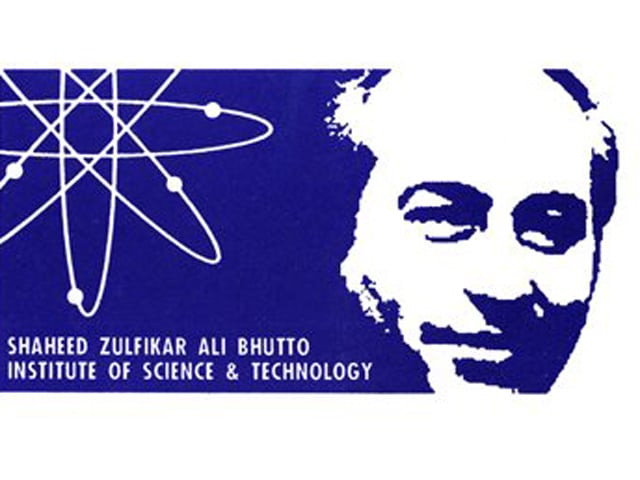SZABIST beats two Lahore law colleges in mock court competition
Mock trials give students a chance to flex their muscles and defend ‘clients’.

Lahore University of Management Sciences came third.
The subject was International Humanitarian Law, which is a body of international rules that seeks to limit the effects of armed conflict by protecting victims of war. Around 12 teams from prestigious law colleges across the country participated in the court set up at the Sadequain Art Gallery at the historic Frere Hall.
“At present, Pakistan is a conflict zone and the rules of international humanitarian law have become relevant to us more than ever,” said the vice president of the SZABIST law society Zulekha Sakrani while talking to The Express Tribune.
She went to a regional moot court competition held in Nepal last year, where no Pakistani judge was invited to preside over the sessions. Sakrani felt that while Pakistani judges have produced a few of the best judgments at international criminal tribunals, there is a need to recognise their efforts. “Our upcoming lawyers should have an understanding of the principles of this very important international legal regime,” she added.
A moot court is a mock trial where the participants play the role of lawyers arguing points of law before a panel of judges. Mooting has emerged as a vital component of legal education in many leading law schools across the world because it caters to the training of fundamental skills necessary for a prospective lawyer. At the competition this weekend, the participants played the role of lawyers at the International Criminal Court, trying to prove or disprove charges of war crimes against their clients.
Shehzad Ghayas Shaikh of LUMS said that this competition gave him great experience. “We get rare chances to interact with the law students of other institutions,” he said. “Such competitions in the presence of real judges teach what law students cannot learn and experience in their classrooms.” In future, Shaikh would like to start his career from the lower courts because, in his view, this would give him a firm base in procedural laws.
The panel of judges for 15 different trials comprised four judges, lawyers and academics with expertise in this particular area. The final of the moot court was presided over by Justice Faisal Arab of the Sindh High Court while the other three judges in the panel were Justice Khalida Rachid Khan, the president of the UN International Criminal Tribunal for Rwanda, Ahmer Bilal Soofi, a member of the advisory council of the United Nations on Human Rights and David Tuck, a legal adviser of the International Committee of the Red Cross’s Pakistan delegation.
“This is the first time that such an event has been organised on this scale in Pakistan and we hope that this is the first of what would become an annual fixture in SZABIST law society’s academic year,” said Fahad Zia, a spokesman for the society. “This initiative would hopefully polish the students’ legal and public speaking skills simultaneously.”
At the end of the event, members of the winning team and students of SZABIST Law School Hiba Thobani, Faiza Saleem and Mishaal Lakhani were presented a trophy by the chief guest.
The following institutes participated: Pakistan College of Law, Lahore, University Law College, Quetta, City School of Law, Quetta, Law College, University of Peshawar, Gillani Law College, Bahauddin Zakaria University, Multan, The Institute of Legal Studies, Lahore, University College, Lahore, L’ecole for Advanced Studies, Karachi, Bay View High, Karachi and Hamdard University, Karachi.
Published in The Express Tribune, January 16th, 2012.



















COMMENTS
Comments are moderated and generally will be posted if they are on-topic and not abusive.
For more information, please see our Comments FAQ